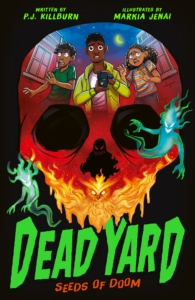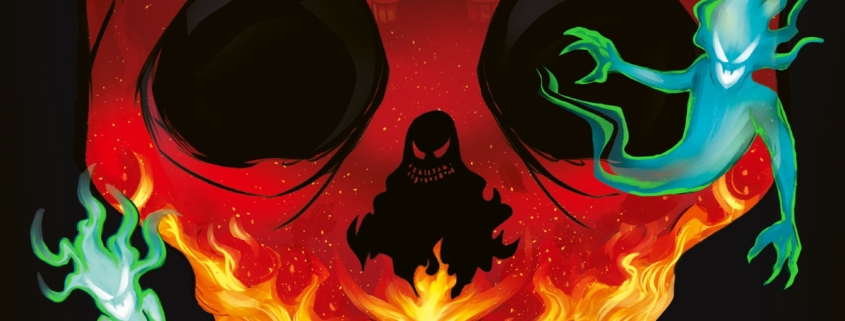Dead Yard Seeds of Doom by P.J. Kilburn
We welcome author, P.J. Kilburn to the blog today sharing some personal insights into her book, Dead Yard Seeds of Doom.

The first dead yard I remember attending was for my grandmother. I was 12 years old and in Year 7 at the time. I had probably attended ones before that age; growing up in a small town like Gros-Islet, St Lucia meant that you knew everyone and was therefore a part of every event, be they births, deaths, weddings, baptisms, graduations… the list was endless. To be a Caribbean person is to be part of a close-knit community that celebrates everything from the beginning of a life to the very end. But the first event that centred my family was my grandmother’s dead yard.
Dead yard, nine night, lavéyé, wake, whatever you want to call it, is a tradition originating from West Africa that is practiced in the Caribbean to this day. When a person passes away, their family and friends come together to mourn their passing and celebrate their life. Traditionally there is a gathering every night until the funeral, and it can range from small, quiet affairs to loud parties filled with music, food and dancing. There was a gathering for my grandmother for all nine nights between her sudden passing and her funeral, but I only remember two. The first was a big party at our house. I grew up in a little cabin on a big hill surrounded by trees, and on that night people parked at the bottom and walked up, trays of food and bottles of drink in hand, to support my family. My father, the oldest of my grandmother’s three sons, welcomed everyone with open arms while my mother took out the paper plates and plastic cups to feed everybody, while I gave out cutlery and napkins. We ate, drank, danced, sang and cried until the wee hours of the morning. I remember falling asleep to the sound of the people that loved us still on our balcony, their voices carried by a gentle night’s breeze.
The other night I remember was far more sedate. It was held at one of my grandaunt’s house; my grandmother was one of 10 children, several of whom were still alive and it was only fair that they shared the role of organising a dead yard. My grandaunt, who didn’t want too many people at her house, only had her remaining siblings, my parents and I in attendance. The siblings all sat around her little wooden table and traded stories about my grandmother, stories I had never heard before of my grandmother as a young girl in St Lucia, of a young woman in London as part of the Windrush generation, of a mother and wife, a harsh disciplinarian and a Good Christian and all these phrases that I’d never used to describe my boiled sweet loving, Columbo watching grandmother because I hadn’t known to until then. I remember feeling very grown up, getting to be at the table and listen as they spoke, and feeling like I was being reintroduced to my grandmother in a new and special way. In one sense I had lost her, but in another I had found her too.
All of this came to mind when I was first told about Dead Yard, a project that was created by the people of Storymix. These were also island people who had experienced a dead yard and wanted to share a few of the cultural touchstones of the Caribbean community. This is why at the centre of the story is the relationship between Jermaine, a young Jamaican boy who grew up in London, and the elders in his family, both living and dead. We navigate our relationship with our culture through these relationships and shared experiences, and we hope that this book shares a part of our folklore that is important to our community.
Views expressed do not necessarily reflect those of the Federation.



